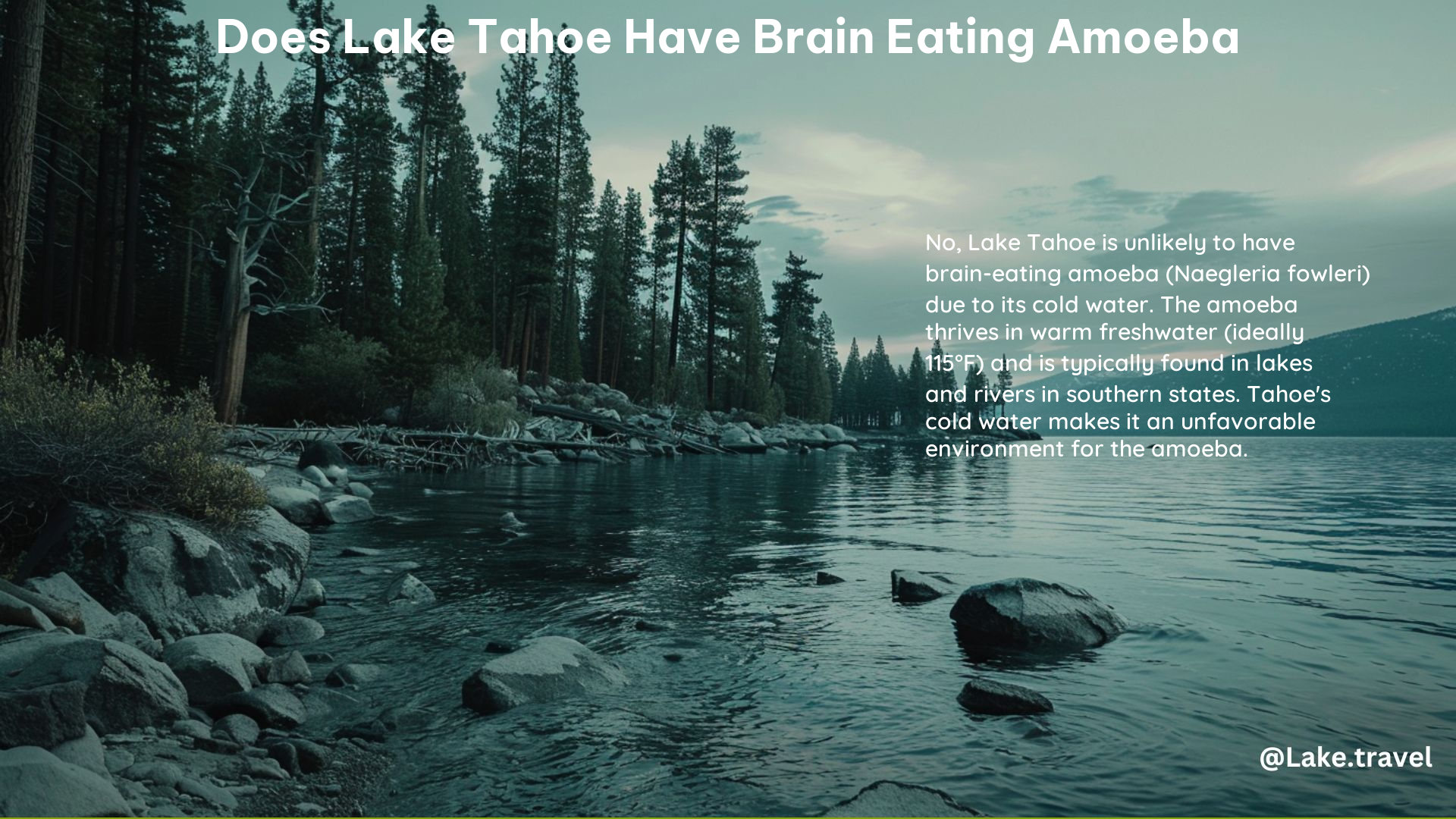Lake Tahoe, a renowned destination for outdoor enthusiasts, is often the subject of questions regarding the presence of potentially dangerous organisms. One such concern is the brain-eating amoeba, Naegleria fowleri, which has gained attention in recent years. In this blog post, we’ll explore the likelihood of this amoeba being present in the waters of Lake Tahoe and provide you with the necessary information to enjoy your time at this beautiful lake safely.
Is Lake Tahoe at Risk for Brain-Eating Amoeba?
The short answer is that Lake Tahoe is generally considered a low-risk area for Naegleria fowleri, the brain-eating amoeba. This is primarily due to the cold water temperatures of the lake, which are typically not conducive to the amoeba’s growth and survival.
Lake Tahoe’s Water Temperature
Lake Tahoe is known for its crystal-clear, cold waters. The average water temperature in the lake ranges from around 40°F (4°C) in the winter to a maximum of around 68°F (20°C) during the warmest summer months. This temperature range is generally too cold for Naegleria fowleri to thrive, as the amoeba prefers warmer freshwater environments, typically in the range of 77°F to 115°F (25°C to 46°C).
Rare Cases in California
While Lake Tahoe itself has not reported any confirmed cases of brain-eating amoeba infections, there have been a few rare instances of Naegleria fowleri infections in other parts of California. In 2021, a 7-year-old child contracted the amoeba while swimming in a freshwater lake in Tehama County, located in Northern California. This incident serves as a reminder that, although uncommon, the risk of Naegleria fowleri infections in California cannot be entirely dismissed.
Precautions to Take at Lake Tahoe

Despite the low risk of brain-eating amoeba in Lake Tahoe, it’s always important to take certain precautions when enjoying the lake’s waters. Here are some recommendations:
-
Avoid Submerging Your Head: When swimming or engaging in water activities, try to avoid submerging your head underwater. The amoeba can enter the body through the nose and potentially cause a fatal infection.
-
Use Nose Clips or Hold Your Nose: If you do plan to submerge your head, consider using a nose clip or holding your nose shut to prevent water from entering your nasal passages.
-
Avoid Stirring Up Sediment: Avoid activities that may stir up the lake’s sediment, as this can increase the risk of exposure to any potential pathogens.
-
Monitor Water Conditions: Keep an eye on any public health advisories or warnings issued by local authorities regarding the water quality or potential presence of harmful organisms in Lake Tahoe.
-
Seek Medical Attention Promptly: If you experience any concerning symptoms, such as severe headache, fever, or changes in mental status, after swimming or engaging in water activities, seek medical attention immediately and inform your healthcare provider of your recent water exposure.
Conclusion
In conclusion, while the brain-eating amoeba Naegleria fowleri is a serious concern in some parts of the United States, the risk of encountering it in the cold waters of Lake Tahoe is generally considered low. However, it’s always important to take reasonable precautions and stay informed about the latest developments regarding water safety in the region. By following the recommended guidelines and staying vigilant, you can safely enjoy the beauty and recreational opportunities that Lake Tahoe has to offer.
Reference:
- https://www.watereducation.org/aquafornia-news/brain-eating-amoeba-infections-are-spreading-across-us
- https://www.reddit.com/r/laketahoe/comments/15wzlwx/so_about_the_brain_eating_amoeba/
- https://www.kolotv.com/2023/07/31/doctors-concerned-brain-eating-amoeba-infection-could-increase-due-warmer-water-temperatures/
- https://www.sacbee.com/news/california/article253401585.html
- https://www.kolotv.com/2023/07/21/2-year-old-boy-dies-after-being-infected-with-rare-brain-eating-amoeba-officials-say/
